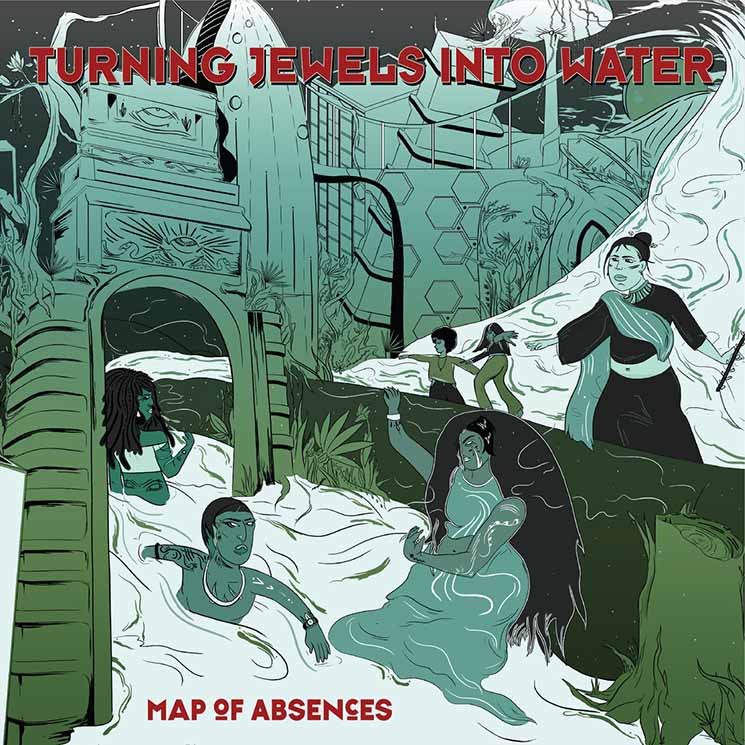One of the more interesting acts to bubble out of the melting pot of NYC's arts scene, Turning Jewels Into Water is made up of Indian-born drummer/producer Ravish Momin and Haitian electronic percussionist Val Jeanty, both with impressive achievements attached to their names. (Jeanty is a visual artist with MOMA and the Whitney Museum on her resume, and Momin has long travelled the world with jazz/electronic group Tarana, playing various prestigious festivals.)
On Map of Absences, their first full-length, they create a compelling mix of turntablism, global dance sounds and electro-acoustic beats, each drawing richly from their respective heritages.
Press material stress the live aspects of their work, and it can certainly be felt in some of the more off-kilter and creative polyrhythms the duo construct together. It's a mature and refreshingly international sound, featuring a lot of percussion taken from South Indian classical music that you likely don't hear enough of, and Haitian ritual chants too. Grooves tend to emerge over time, and layers come and go, with Momin's jazz background providing him a steady improvisational hand throughout.
Things start out a bit uncertainly with the perhaps too awkwardly spaced beats of opener "Lake Hums No More At Night," but by the time the tumbling rhythms of "Azul (For Nidia)" kick in, your interest should be piqued. Hearing the ritual chants of "Desert Fire" getting chopped and swirled up into the night is a real treat as well; almost every track has something interesting to offer.
In that sense, it's definitely a music of ideas, and might come off as too dry or even academic to some, but those with, well, academic tastes should be well pleased with Map of Absences. Really though, anyone with an interest in complex beats and non-Western sounds should take a look at Momin and Jeanty's work here; they're on to something pretty unique.
(FPE Records)On Map of Absences, their first full-length, they create a compelling mix of turntablism, global dance sounds and electro-acoustic beats, each drawing richly from their respective heritages.
Press material stress the live aspects of their work, and it can certainly be felt in some of the more off-kilter and creative polyrhythms the duo construct together. It's a mature and refreshingly international sound, featuring a lot of percussion taken from South Indian classical music that you likely don't hear enough of, and Haitian ritual chants too. Grooves tend to emerge over time, and layers come and go, with Momin's jazz background providing him a steady improvisational hand throughout.
Things start out a bit uncertainly with the perhaps too awkwardly spaced beats of opener "Lake Hums No More At Night," but by the time the tumbling rhythms of "Azul (For Nidia)" kick in, your interest should be piqued. Hearing the ritual chants of "Desert Fire" getting chopped and swirled up into the night is a real treat as well; almost every track has something interesting to offer.
In that sense, it's definitely a music of ideas, and might come off as too dry or even academic to some, but those with, well, academic tastes should be well pleased with Map of Absences. Really though, anyone with an interest in complex beats and non-Western sounds should take a look at Momin and Jeanty's work here; they're on to something pretty unique.
